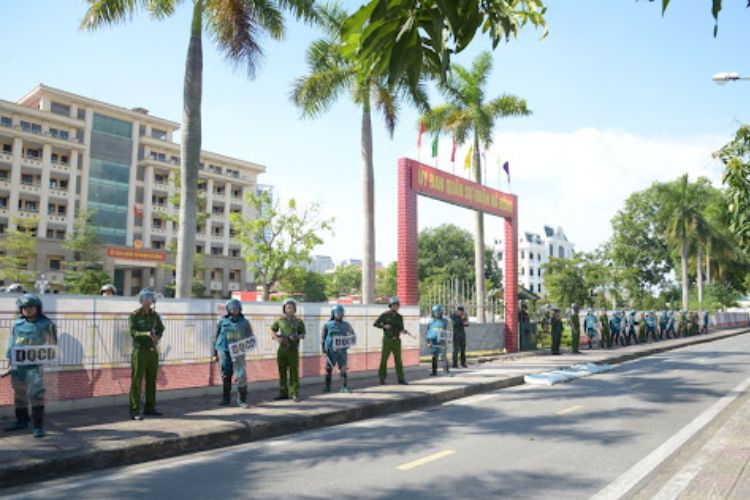1. What is martial law? When was martial law ordered?
According to the provisions of Article 21 of the Law on National Defense 2018, martial law is a special state management measure for a limited time implemented by the Army.
When political security, social order and safety in one or several localities are seriously infringed upon to the extent that the authorities there can no longer control the situation, the President shall order martial law at the Government’s request.
Note:
– The martial law order must specify the localities at the provincial, district, commune and commune levels, the special administrative-economic units that are martial law, the measures and the implementation effect; to prescribe the tasks and powers of agencies, organizations and individuals; the necessary social order rules in the locality are martial law and are continuously announced on the mass media.
– Based on the President’s order on martial law and the Prime Minister’s decision on the implementation of the martial law order, the Minister of National Defense shall direct and command the People’s Army and Militia and Self-Defense units assigned to perform tasks in the localities where martial law is carried out in accordance with law.
– During the martial law period, the state management in the martial law locality shall be assigned to the military unit. Commanders of military units assigned to manage martial law localities shall have the right to order the application of special measures specified in Clause 6 of this Article and other necessary measures for the implementation of martial law orders and take responsibility for the application of such measures. Commanders of military units assigned to manage provincial-level localities under martial law are entitled to requisition and requisition of property. The requisition and requisition of assets shall comply with the provisions of the Law on Requisition and Requisition of Assets.

2. Special measures shall be applied during the execution of martial law orders
Special measures applied during the execution of martial law order include:
– Prohibiting or restricting people and means of travel; suspend or restrict activities in public places;
– Prohibiting demonstrations, strikes, market blockades, lockdowns, mass gatherings;
– Arrest or coercion of individuals and organizations engaged in activities infringing upon national defense and security to leave or be banned from leaving their places of residence or a certain area;
– Mobilizing people and vehicles of agencies, organizations and individuals;
– Special management of weapons, explosives, combat gears, inflammables, poisons and radioactive substances; strictly control information technology infrastructure, information media, press and publishing activities, printing and copying establishments, information collection and use.
Note:
– All activities in martial law localities must comply with martial law orders and special measures.
– The trial of crimes occurs in the locality during the execution of the martial law order in accordance with the provisions of the Criminal Procedure Code.
– When the situation of political security, social order and safety in the locality where martial law is stabilized, the State President shall order the annulment of the martial law order at the proposal of the Government.

